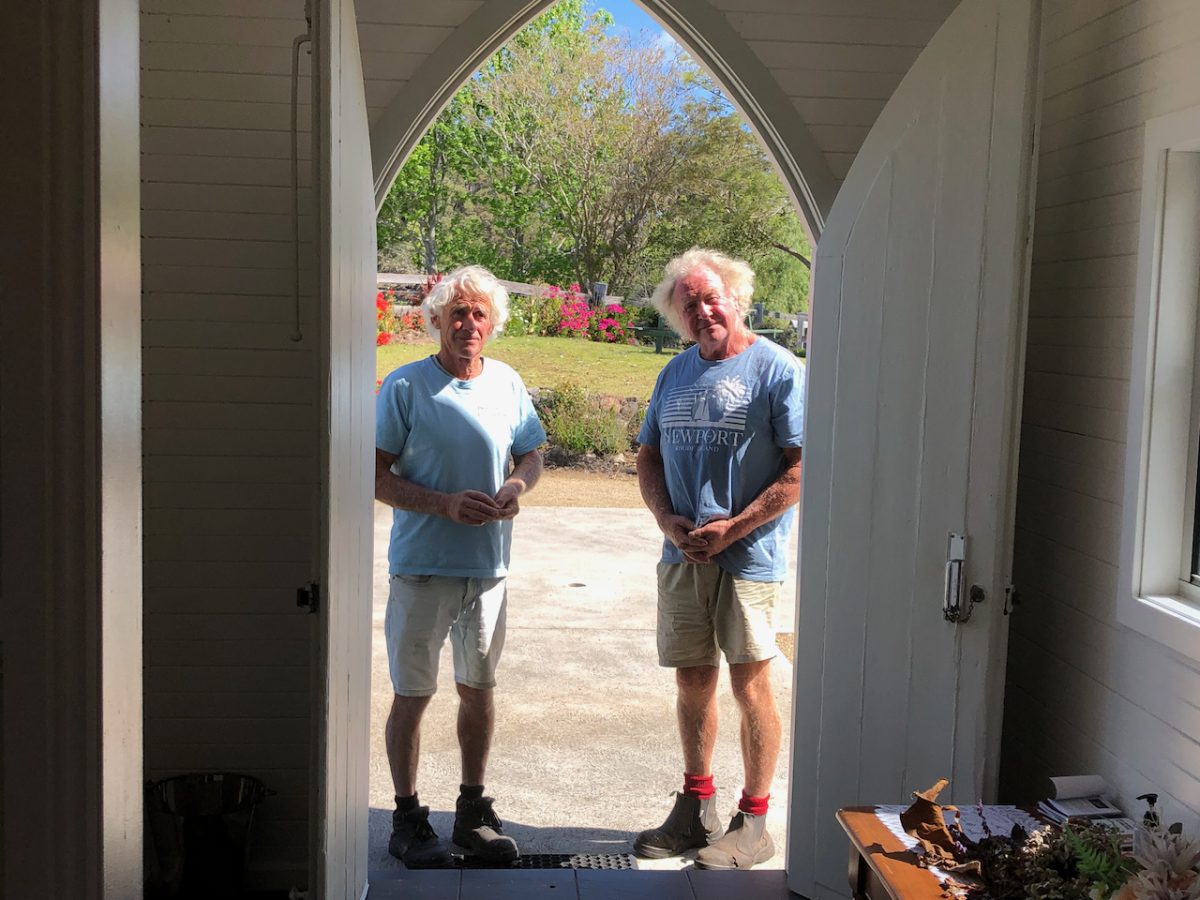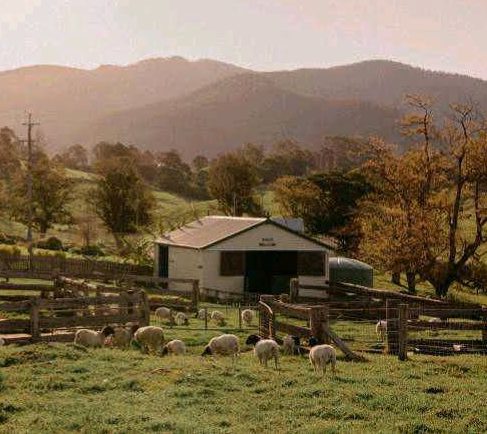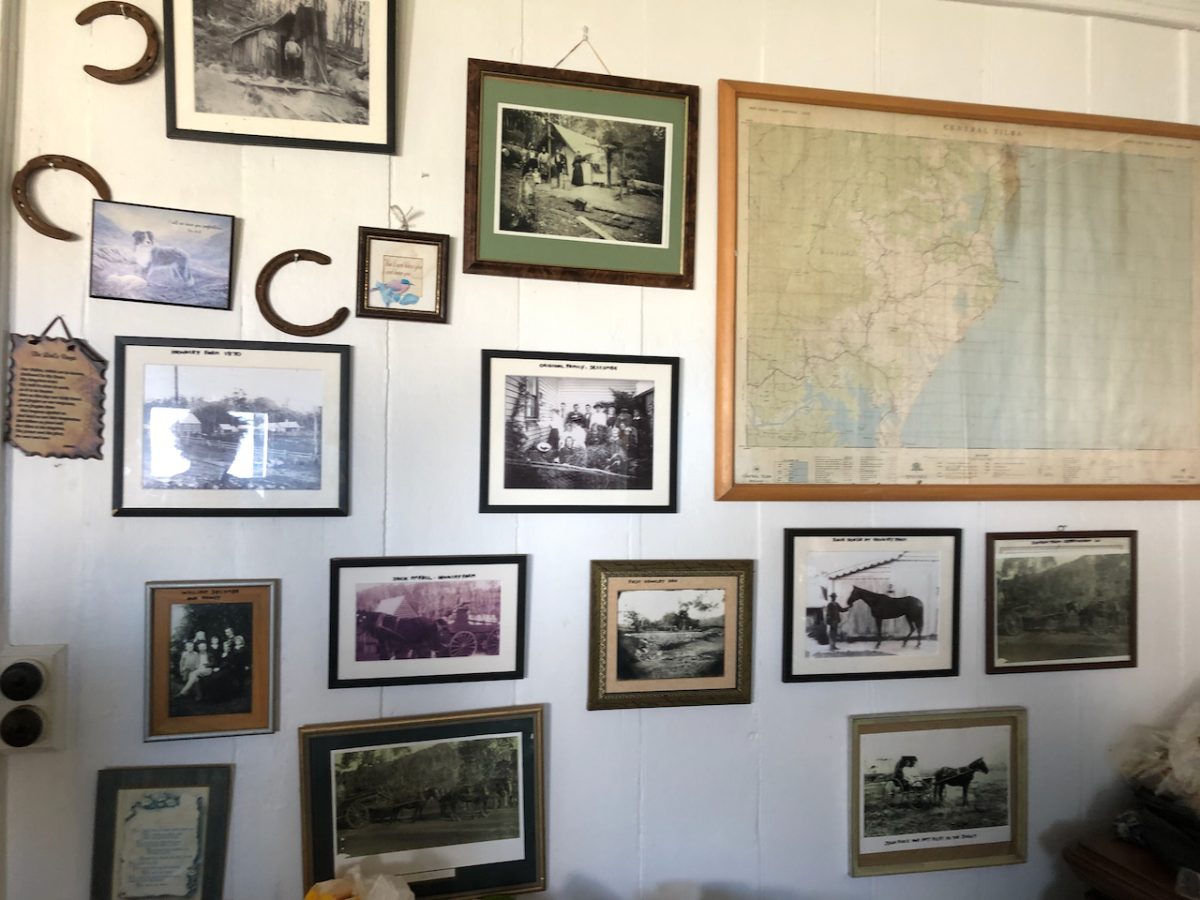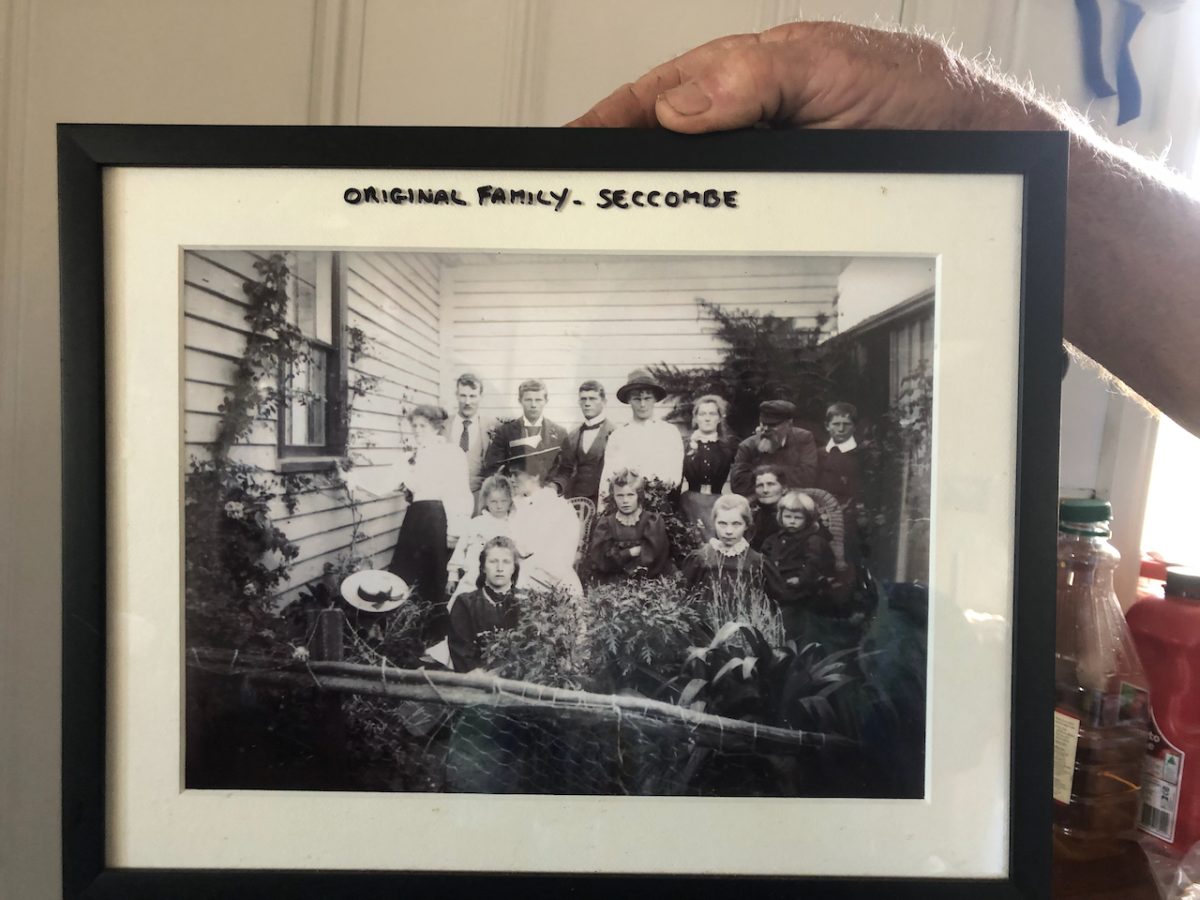
Les and Richard Stokes in the doorway of the recently built chapel at historic Henkley Farm. The doors came from Bermagui’s Anglican church. Photo: Marion Williams.
It is seven years since brothers Richard and Les Stokes bought Henkley, one of the original dairy farms in Tilba.
In that time, they have repaired all the outbuildings, plus had a separate reception, chapel and holiday accommodation built in the same style as the National Trust-listed 1870 homestead.
Having pieced together some of the property’s considerable back story with the help of neighbours Kathleen Hoyer and her now-deceased husband Norm, they are opening up to share this special piece of Tilba’s history with locals and visitors alike.
The 153-acre (62-hectare) working farm has some remarkable features.
The tracks of the Cobb & Co route from Sydney to Bermagui are clearly visible in their southern paddocks. The largest barn is one of only six of its design still standing in Australia. The laundry has an old copper and a cistern well. Even the recently built chapel has pews from the Anglican churches in Cobargo and Narooma, and arched doors from Bermagui’s church. The piano is from Bodalla’s historic All Saints Anglican Church.

All the original outbuildings on Henkley Farm have been repaired. Photo: Supplied.
Originally from Berkshire in England, the brothers moved to Australia as children. Their parents were farmers. The brothers worked in the construction industry for a period before returning to their roots by buying a farm on the Mornington Peninsula.
For some 30 years they spent their holidays in the Tilba area. In 2017, Nic Dibden of the ABC Cheese Factory and Tilba Dairy told them that the historic farm was for sale. They now run about 70 Aberdeen Angus cattle and 70 Dorper sheep, plus ISA Brown chickens. They also have named pet lambs, which are a hit with children.
The old piggery remains as another piece of Tilba history. Back in the day, all the dairy farmers kept pigs because they fattened up well on the whey. In the early 1890s, the pigs would be driven in mobs to the bacon factory on Bodalla Estate.
In addition to restoring the outbuildings that were leaning over, the brothers have fixed all the fences, laid paving and made stone dry walls in keeping with the property’s heritage nature.
“It was all run down when we got here and we have got it back to where it should be,” Richard says.

A wall in the homestead is covered in photos that capture Henkley’s history. Photo: Marion Williams.
To open the property to the public, they have formed partnerships with various locals including the Tilba Cooks.
Tilba Cooks provided high tea at the farm in April for the Tilba Walks Heritage Walking Tours as part of the National Trust’s annual Australian Heritage Festival.
Tilba CWA has also chosen Henkley Farm’s reception The Sheep Shed as the venue for its fundraising Spring High Tea on 27 October.
Richard can talk all day about the farm’s history. Brothers John and William Seccombe named the farm after a town in the UK. It is surrounded by other original Tilba farms including Kent and Sherringham.
“They were pioneers who cleared the land and opened it up for farmers,” Richard says.
John Seccombe lived at the Henkley homestead with his wife and their 15 children. In addition to being a dairy farmer, he had racing horses and several mining ventures.
His brother William owned the adjoining property, Morangi. William was involved in the advancement of the district, was an enthusiastic sportsman, and secretary of the local cricket club for 12 years.

A photo of John Seccombe, his wife and their 15 children. Photo: Marion Williams.
After 30 years, John sold Henkley to Arthur Caffin in 1901. He was a progressive farmer who built the area’s first ”tub” silo in 1906 to keep up milk production during winter and drier periods. It was possibly the first silo on the South Coast.
During silo period, the farm employed six extra men to cut the maize crops. Several camped in the barn while they worked there.
Mr Caffin was also the first in the area to have a Jersey herd and, appreciating the conservation of water, he built a large dam on Henkley. The three initiatives greatly increased Henkley’s milk production.
Mr Caffin sold the 220-acre (89 ha) farm to John McFaul in 1908. On Mr McFaul’s death in 1937, his son Fred took over Henkley. When Fred retired in 1970, his son Jack bought it, so Henkley was home to three generations of the McFaul family.
Richard and Les keep in contact with Alice McFaul, who was born there. Now in her 80s, she lives in Queensland.
The farmstay has received excellent reviews and the brothers are keen for more visitors.
“We have a lovely farm, but we want to share it and share the history of Tilba,” Richard says.







